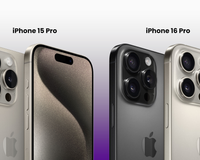We’ve been told to sort our plastic into recycling bins for over 80 years, but the threat of plastic pollution simply doesn’t go away. That’s because there is still far too much throwaway plastic for the UK to deal with that less than 10% of everyday plastic actually gets recycled.
Where does the rest go? *Caution* it’s about to get messy...
- Household recycling goes to grim sorting facilities where people and machines separate the recycling into different types
- It might find its way into a waste incinerator i.e. burning waste (hello air pollution)
- Some goes into landfills which leach toxic chemicals into the environment or…
- It gets dumped on other countries and we don’t even know if it ever actually ends up being recycled

Most of the UK’s recycling partners (if we can even call them that) have extremely low recycling rates and have a serious problem with the waste bring dumped. In fact, the Turkish government announced a ban on almost all foreign waste imports in May 2021 after years of campaigning from Greenpeace.
It’s pretty clear that this global crisis needs a solution - stat. Government bans on single-use plastic are one way, but we also help by reducing our plastic consumption at home too.
To help you out, we’ve created a list of 5 simple plastic-free swaps to reduce plastic use at home:
In the shower:
The UK produces 2.3 million tonnes of plastic packaging each year - yikes! So why not make the switch to refillable body care products from fiils. Fiils deliver high-quality beauty and personal care essentials that are planet-friendly and practical, plus their shampoo and conditioner are 100% vegan, cruelty-free, paraben and sulphate free and are designed to nourish and strengthen your hair.
Water bottle:
Plastic commonly ends up in our oceans via pretty much any of the avenues mentioned above, particularly when we send Olympic swimming pool-sized loads to small coastal communities across the world. And we get it - hydration is important, but it doesn’t always have to come at the cost of our oceans and wildlife.
S’wheat is tackling this problem with their plastic-free water bottles. Not only this, but for every bottle sold they take plastic out of our oceans, plant a tree and donate a % of profits to protect our sea life. They’re also super stylish, durable and lightweight!
Deodorant:
Every deodorant you’ve ever used is still in existence. So it’s well beyond time for us to change our habits and opt-out of single-use bathroom products.
Fussy is the plastic-free refillable deodorant brand backed by science not buzzwords. Their re-fills are made from waste sugarcane and once empty will just decompose in your garden or bin. Plus they’re certified carbon neutral and support gold standard green energy projects around the world.
Laundry:
It’s the little things that make the biggest difference when it comes to reducing your plastic consumption. Changing up your laundry products to plastic-free packs is a great place to start.
Smol makes plastic-free laundry and dishwasher packs that don’t compromise on quality. Their recyclable/compostable packs protect your smol laundry and dishwash on their way to your home and include a child-lock mechanism to impede access to younger children.
Phone case:
1.5 billion phone cases are thrown away each year. It can take up to 1000 years for plastic to break down, and that doesn’t mean it’s gone forever either. Plastic breaks down into micro-plastics that end up floating in the ocean.
reboxed came up with a solution - a phone case that contained no plastic and made no waste. Our cases are plastic-free and engineered from plastic-based bio-polymers. They’re even suitable for composting too.
Their hard-wearing yet soft-to-touch feel means your phone’s cosmetic condition value is protected longer - meaning more money in your pocket if you choose to sell your phone for an upgrade.
So there you have it. Simple swaps to reduce plastic at home that are better for your pocket and our planet.






![The Best iPhones for battery life ranked [2025]](http://reboxed.co/cdn/shop/articles/IPHONE-BATTERY_e2de6230-b1d2-4348-ac33-e47d1e267bdd_100x80_crop_center@2x.jpg?v=1738489925)






